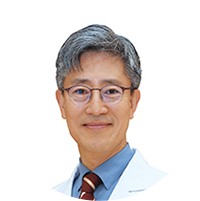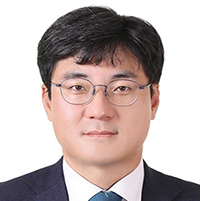
Oh Jong-geon, President of the Korean Society of Traumatology, January 2024

In the current medical system where medical specialties and roles are highly specialized and a lot of equipment and facilities are mobilized, it is no exaggeration to say that there are few cases where a single doctor can dramatically treat a difficult patient. As a result, multidisciplinary treatment is becoming a major trend in all areas of medicine. For multidisciplinary treatment to be successful, I think the most important factor is team spirit, where the medical staff participating in the treatment each perform their own specialized roles while simultaneously acknowledging the expertise and value of the other party and trying to collaborate only to achieve the best results for the patient. We all know well that the severely traumatized patients we care for are those who desperately need multidisciplinary treatment through team spirit more than any other group of patients to revive their fading lives, restore function, and return to society. For this reason, the Korean Society of Traumatology has traditionally emphasized communication and organic cooperation of the Trauma Team.
As an orthopedic trauma specialist, I personally have deep respect and gratitude for the dedication of the trauma surgeons I have worked with. This is because, beyond the work aspect of our trauma surgeons competing against each other to save patients and caring for patients in the intensive care unit day and night, they have personally demonstrated their team spirit in that they respect the value of my main role of fracture treatment and are willing to collaborate with me.
Since its establishment in 1985, the Korean Society of Traumatology has been proud to have contributed greatly to the advancement of treatment for severely injured patients in Korea academically and through regional trauma center projects for the past 40 years with this precious spirit.
However, I do not think that it is an easy path to devote oneself as a trauma specialist at a regional trauma center or to devote one’s entire career to trauma at a general hospital in Seoul or the Capital Integrated Hospital. I cannot help but feel sorry whenever I hear news that someone has decided to change jobs due to burnout after devoting themselves as a trauma specialist at a regional trauma center for several years.
In this reality, discovering and nurturing talents who are willing to devote themselves to trauma and having them work at trauma centers is as difficult as saving severely injured patients, but I believe it is a task that we all must continuously solve by pooling our wisdom and strength. In addition, I will do my best, however small, to support Chairman Cho Hang-ju in the work that the Korean Society of Traumatology has been promoting, such as the advancement of academic fields, improvement of the trauma patient transport system, improvement of public awareness of the importance of trauma patient treatment, and policy support for the trauma treatment system, which the executives have worked hard for before.
thank you.

Hello. I am Jo Hang-ju,
the newly appointed Chairman of the Korean Society of Traumatology.

The Korean Society of Traumatology was established in 1985, and it will be 40 years old next year. The Korean Society of Traumatology has made great progress thanks to the efforts of the passionate and excellent former presidents and chairmen. The international society PPTC has already reached its 10th anniversary, the second edition of the traumatology textbook has been published, and the status of the papers is also increasing. Along with the development of regional trauma centers, many members of the regional trauma centers have participated in the society and have contributed to the development of trauma in Korea. We have signed MOUs with many related societies to promote mutual development.
During this term, I will try to establish and further develop the policies that have been promoted so far. Although the TIRC education course is being operated well, I would like to develop more practically necessary courses and devise a plan for further development with the societies that have signed MOUs. As the most important partner of the Ministry of Health and Welfare and the Central Emergency Medical Center for trauma policies, I will support the policy research institute that develops and supports various policies. I will prepare well for the 40th anniversary while I am in office, and I will spare no effort in actively supporting those who are responsible for various tasks so that they can carry out their activities sufficiently.
I would like to end here by asking for your generous advice and encouragement for the next two years.
thank you